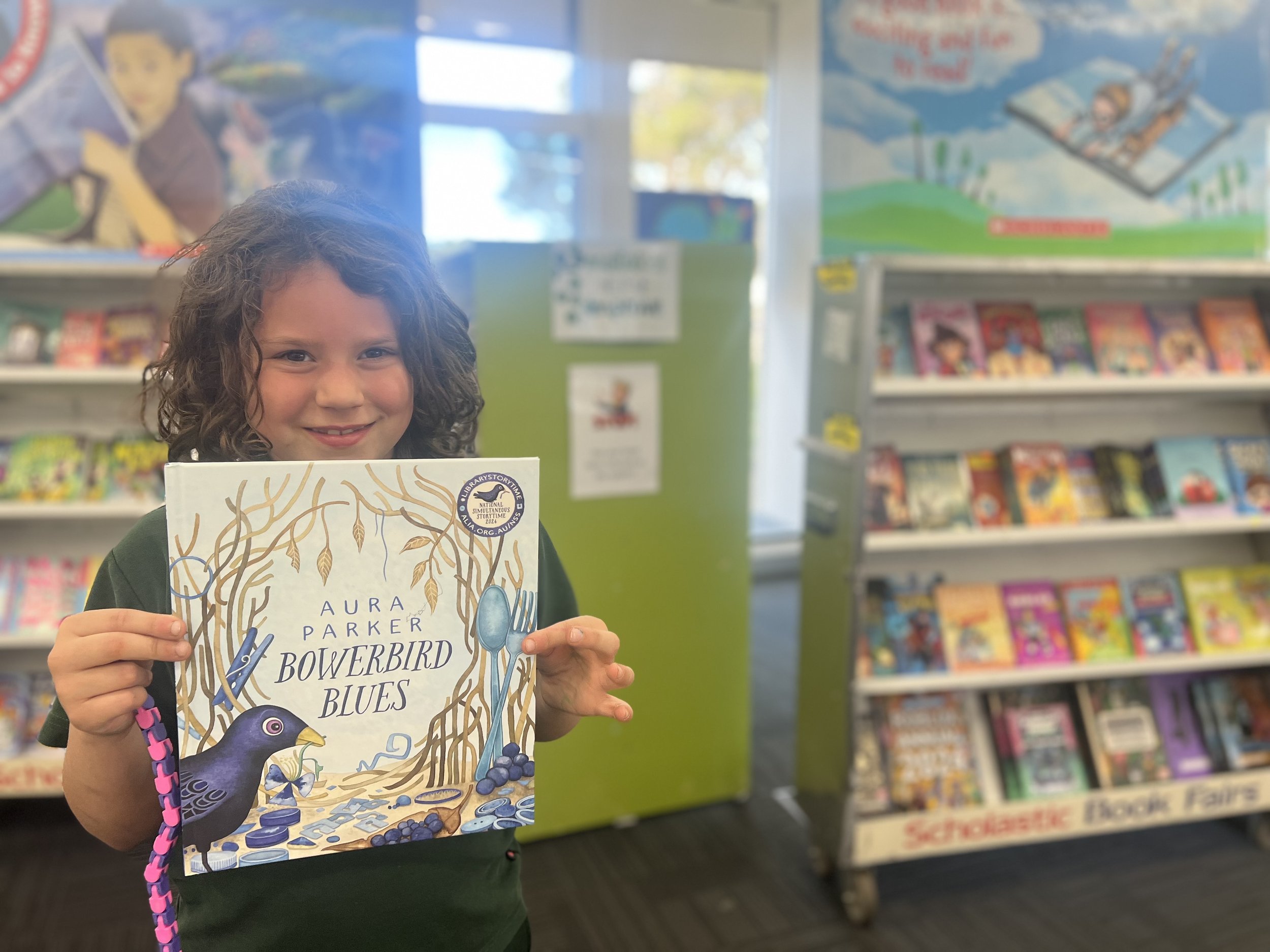
Literacy
Streeton Primary School seeks to inspire students and develop an ongoing love of learning whilst developing quality skills in Literacy. Our whole school approach is working towards students being taught consistently, systematically and explicitly through evidence-based instruction.
Evidence-based, structured literacy forms the basis of our Literacy Block. Our Literacy Block incorporates Reading and Writing with Oral Language Development. There is a strong focus on phonemic awareness, phonics, fluency, vocabulary, comprehension, building knowledge, spelling, handwriting, sentence construction, text composition, morphology and etymology.
Throughout Literacy sessions, students develop their skills and knowledge through a variety of whole class, small group and individual instruction, designed to cater for differentiated learning needs whilst encouraging all students to become independent readers, writers and communicators.
Little Learners Love Literacy
Little Learners Love Literacy (a systematic synthetic phonics program) which has been implemented in the F–2 area is proven to create fluent, enthusiastic readers, confident speakers and willing writers. Our students are engaged daily with Milo Monkey and his friends in Foundation. Our students enthusiastically read the Pip and Tim Series decodable texts as they move through these vital beginning stages of reading in F-2.
PhOrMeS
It is so important for our children to learn to read and write, as they are a key link to success in school and a vital way for children to develop their full potential, both academically and personally. Streeton Primary has always spent extensive time and resources to help our students learn to read and write. We have always been proud to be at the forefront of Literacy learning and kept up to date with initiatives.
To ensure we are on track with research-based practices in Literacy at Streeton Primary School, we began working with Shane Pearson in 2023, a speech pathologist leading Literacy at Brandon Park Primary School. Shane Pearson has successfully implemented PhOrMeS, a curriculum he designed with research-based practice.
In Junior School, the new PhOrMeS curriculum has complemented the Little Learners Love Literacy’s Phonics program, which will be entering into its fourth year at Streeton Primary School. In the Upper School, our students will be exposed to new and exciting vocabulary, and word study through explicit instruction on morphology and etymology.
Writing
At Streeton Primary School, students participate in lessons focusing on grammar, sentence construction with embedded punctuation, and work towards skill development of paragraphs and text composition. They also work towards genre composition of narrative, information/explanation, procedural and recount texts.
